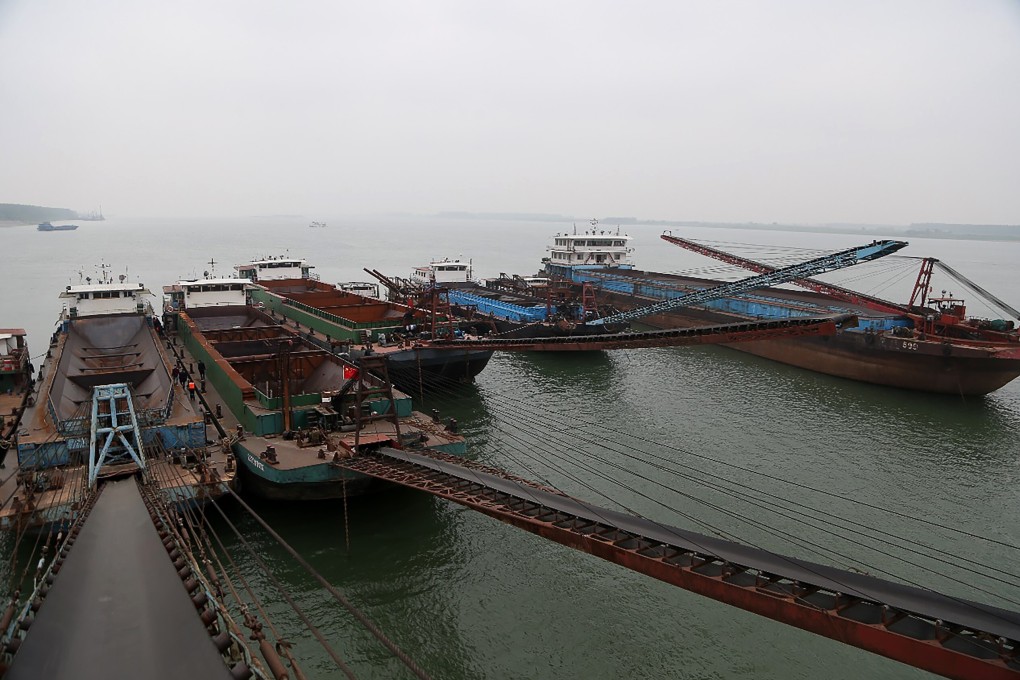China targets illegal sand miners stripping the Yangtze River
- Three ministries launch a campaign to standardise activity and punish gangs and officials skirting the law
- Illegal sand mining endangers ecosystems and hampers flood-control efforts and is believed to have caused Poyang Lake bed to drop at least 20 metres

In a joint notice issued on Monday, the ministries for water, public security and transport said they were “rectifying” mining activities on the Yangtze, aiming to standardise the management of sand mining, as well as investigate and curb illegal sand mining and transport.
The campaign will continue until the end of the year.
River sand is used in construction and while mining the resource is not banned, local governments have been told to set standards for planning and management of the activity on the river and its tributaries and lakes.
This includes establishing no-mining zones and periods and promoting intensive and big mining projects rather than dispersed mining.
Authorities will also curb illegal mining and take action against criminal gangs, the notice says.
Illegal sand mining endangers ecosystems, flood-control efforts and the waterway itself, as well as threatening environmental conservation, according to officials.